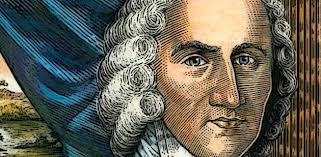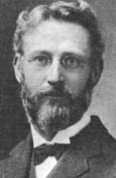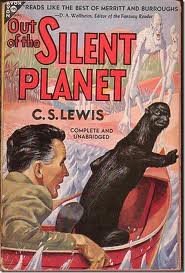
Jonathan Edwards on Perseverance

In working on a monograph titled Covenant and Command: Works, Obedience, and Faithfulness in the New Covenant, I am wrestling with a number of things, including the relationship of justification and sanctification (and between justification and perseverance in particular).
Jonathan Edwards wrestled with this at great length. Here are a couple of selections from volume 19 of the Yale edition of his works (pages 202-203).
"So that although the sinner is actually, and finally justified on the first act of faith, yet the perseverance of faith, even then, comes into consideration, as one thing on which the fitness of acceptance to life depends. God the act of justification, which is passed on a sinner's first believing, has respect to perseverance, as being virtually contained in that first act of faith and 'tis looked upon and taken by him that justifies, as being as it were a property in that faith that then is: God has respect to the believer's continuance in faith, and he is justified by that, as though it already were, because by divine establishment it shall follow; and it being by divine constitution connected with that first faith, as much as if it were a property in it, it is then considered as such, and so justification is not suspended; but were it not for this it would be needful that it should be suspended, till the sinner had actually persevered in faith."
- Details
- Category: Recommended Reading Recommended Reading
- Published: 01 September 2012 01 September 2012
- Hits: 4127 4127
Geerhardus Vos on Paul and Jesus

One of the joys of trying to study and write is the multitude of serendipitous discoveries that one makes along the way. I am trying to finish a monograph, Covenant and Command: Works, Obedience, and Faithfulness in the New Covenant (working title--no pun intended). At present I am trying to deal with the question of justification and future judgment. And I have turned to an older essay by Geerhardus Vos, "The Alleged Legalism in Paul's Doctrine of Justiification." As I read the introduction I was struck by the prescient nature of Vos' thoughts. Here is Vos, found in Redemptive History and Biblical Interpretation, ed. Richard B. Gaffin, Jr. (p. 383). Vos speaks of
". . . the modern attempt to supplant the theology of the Reformation, so largely based on Paul, by a less elaborate, less speculative, more congenial, because supposedly more humanitarian type of religious thought. As Paul is usually identified with the traditional theology, so Jesus has come to stand in many minds for the milder, more simple, form of Christianity toward which the tide has been setting for some time and seems to be setting ever increasingly. The watchword, 'Back to Christ,' implies the charge, whether consciously realized or not, that Paul has deflected the original impulse imparted by Jesus to Christianity, by bringing to bear up on it another force of decidedly lower character. If such a view could be historically justified, it would furnish the best conceivable defense of the modern desire to shake off the theological trammels of the past. If it cannot be justified, if it can be shown that the theology of Paul is the legitimate offspring of the teaching of Jesus, then an equally strong apology for the type of religion inherited from the Reformation will have been furnished. Paul being the true heir and successor of Jesus, all those who profess to be historic Christians must feel in some sense bound to Paul, as they desire to be loyal to Christ."
Well said.
- Details
- Category: Recommended Reading Recommended Reading
- Published: 30 August 2012 30 August 2012
- Hits: 3817 3817
D.A. Carson on Systematic and Biblical Theology

Here is a link to D.A. Carson's essay on Systematic and Biblical Theology.
- Details
- Category: Recommended Reading Recommended Reading
- Published: 27 August 2012 27 August 2012
- Hits: 2891 2891
Scobie on the History of Biblical Theology
Here is the article by Scobie on the history of Biblical Theology. Enjoy!
- Details
- Category: Recommended Reading Recommended Reading
- Published: 24 August 2012 24 August 2012
- Hits: 2890 2890
Thomas Aquinas on Wisdom

Here is a good, short piece on Thomas Aquinas on wisdom. Enjoy! On the question of a Christian approach to wisdom and to the life of the mind, my preference is for Augustine, and I try to flesh this out in a bit in my book, The Gospel and the Mind: Recovering and Shaping the Intellectual Life. But nonetheles, Thomas always repays the attention given him.
- Details
- Category: Recommended Reading Recommended Reading
- Published: 17 July 2012 17 July 2012
- Hits: 4049 4049
C.S. Lewis and Out of the Silent Planet

As a young man I fell in love with the work of C.S. Lewis, and I have never been the same. While I loved his Chronicles of Narnia, I also love his science fiction trilogy: Out of the Silent Planet, Perelandra, and That Hideous Strength. A good friend and I recently read the first of the trilogy, Out of the Silent Planet. While the third in the trilogy, That Hideous Strength, is my favorite, I enjoyed re-reading the first volume.
One of Lewis' most helpful insights is what he has to say about fear. In the novel, a character is summarizing one of the problems of the human race. One of the key issues is fear.
A central character says to Weston (a villain in the story): “When first you came here, I sent for you, meaning you nothing but honour. The darkness in your own mind filled you with fear. Because you thought I meant evil to you, you went as a beast goes against a beast of some other kind, and snared this Ransom” (Ransom is the chief protagonist/hero in the story) (p. 134).
Oyarsa, a leader of an alien planet (I don’t want to give too much away, if you have not read the story!) confronts the evil Weston (the villain from earth): “Yes . . . but one thing we left behind us . . . fear. And with fear, murder and rebellion. The weakest of my people does not fear death. It is the Bent One, the lord of your world [i.e., earth], who wastes your lives and befouls them with flying from what you know will overtake you in the end. If you were subjects of Maleldil you would have peace” (p. 140).
I am currently writing a book on the nature of works, obedience, and faithfulness in the Christian life. This entails that one tries to make sense of why one obeys the Lord, and why one does not. I have been helped over the years by the work of Scott J. Hafemann. One of the things I have learned from Scott (although the insight is not unique to him) is the relationship between unbelief and disobedience (and the relationship between belief and obedience ).
As Hafemann has suggested, we obey the Lord because we trust Him. Indeed, as Hafemann sees it, our obedience is really simply trust in action. That is, our obedience is a form of trust. If this is the case—and I believe Hafemann is right here—then we would be led to say something fairly radical: when we disobey the Lord, in the moment of our disobedience we are—in a sense—practicing unbelief in that moment. That is, if we disobey the Lord we are in fact—when we disobey—saying, “I don’t really believe Lord that You are providing for me, and that the best thing for me to do is to obey you in this instance. At least at this moment I am not so sure that I can trust you to best provide for my needs, and to be the ultimate source of my greatest joy and satisfaction. So, at least at this moment I am going to try another path.” In sum: disobedience is evidence of a type of “temporary” unbelief.
When I re-read Out of the Silent Planet, I thought of Hafemann’s work on the nature of belief/obedience, and unbelief/disobedience. For Lewis seems to be saying that so much of the tragedy and wickedness and sinfulness we see around is rooted in fear. And one way of coming to terms with fear is to realize that it is simply one way in which unbelief manifests itself. For the Christian, fear can never be the final or ultimate way of life. Suffering is real, and tragedy is real, and need not be minimized. But fear is not the final word. If we truly trust the Living God, and believe in the resurrection, we know that death has been defeated, and that God—one day—will make all things right. We should trust that the God of Scripture will do right, and not fear for our future. Fear, it would seem, is simply one more way in which unbelief manifests itself. Ultimately, fear is not an option.
- Details
- Category: Recommended Reading Recommended Reading
- Published: 25 May 2012 25 May 2012
- Hits: 6355 6355